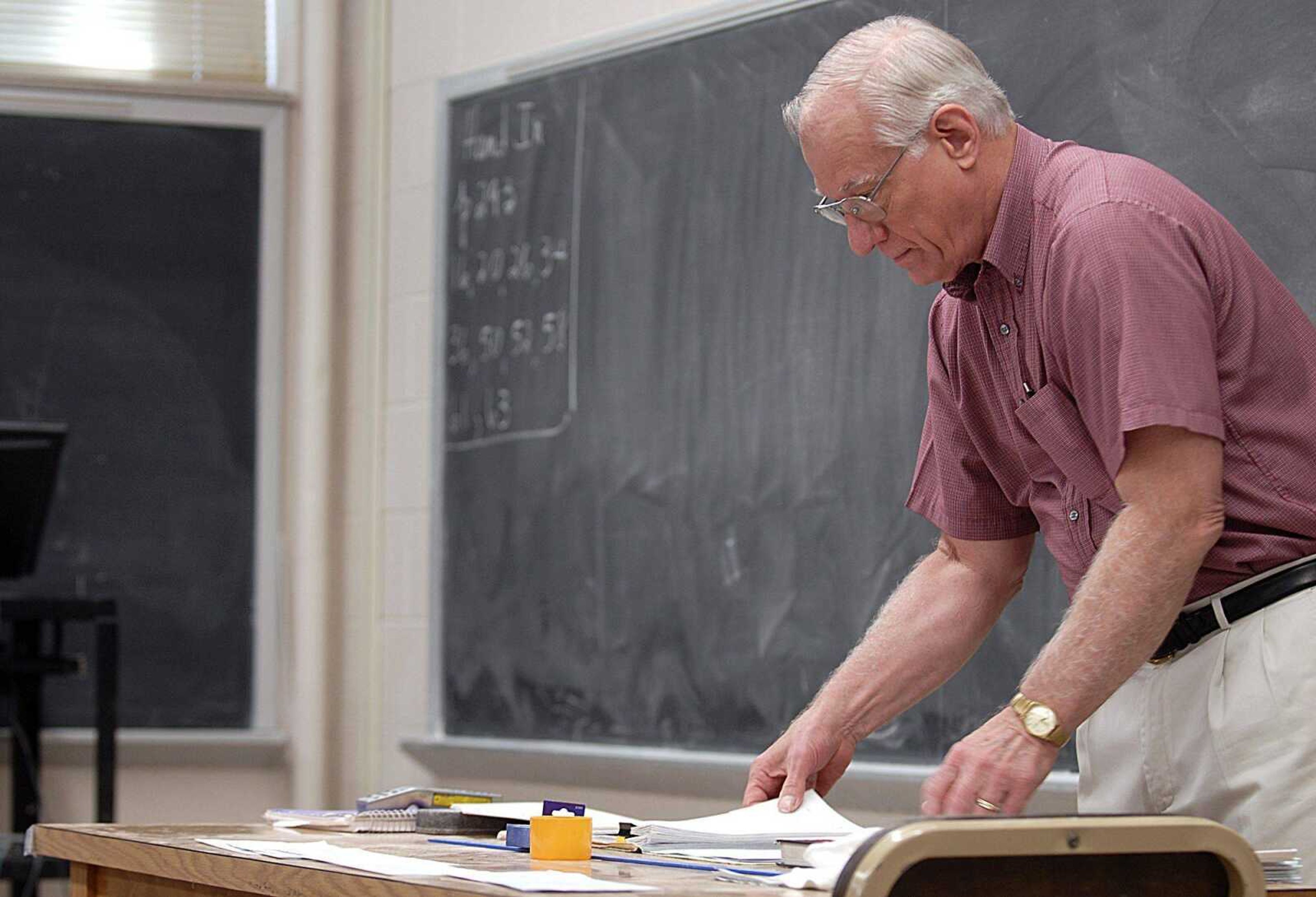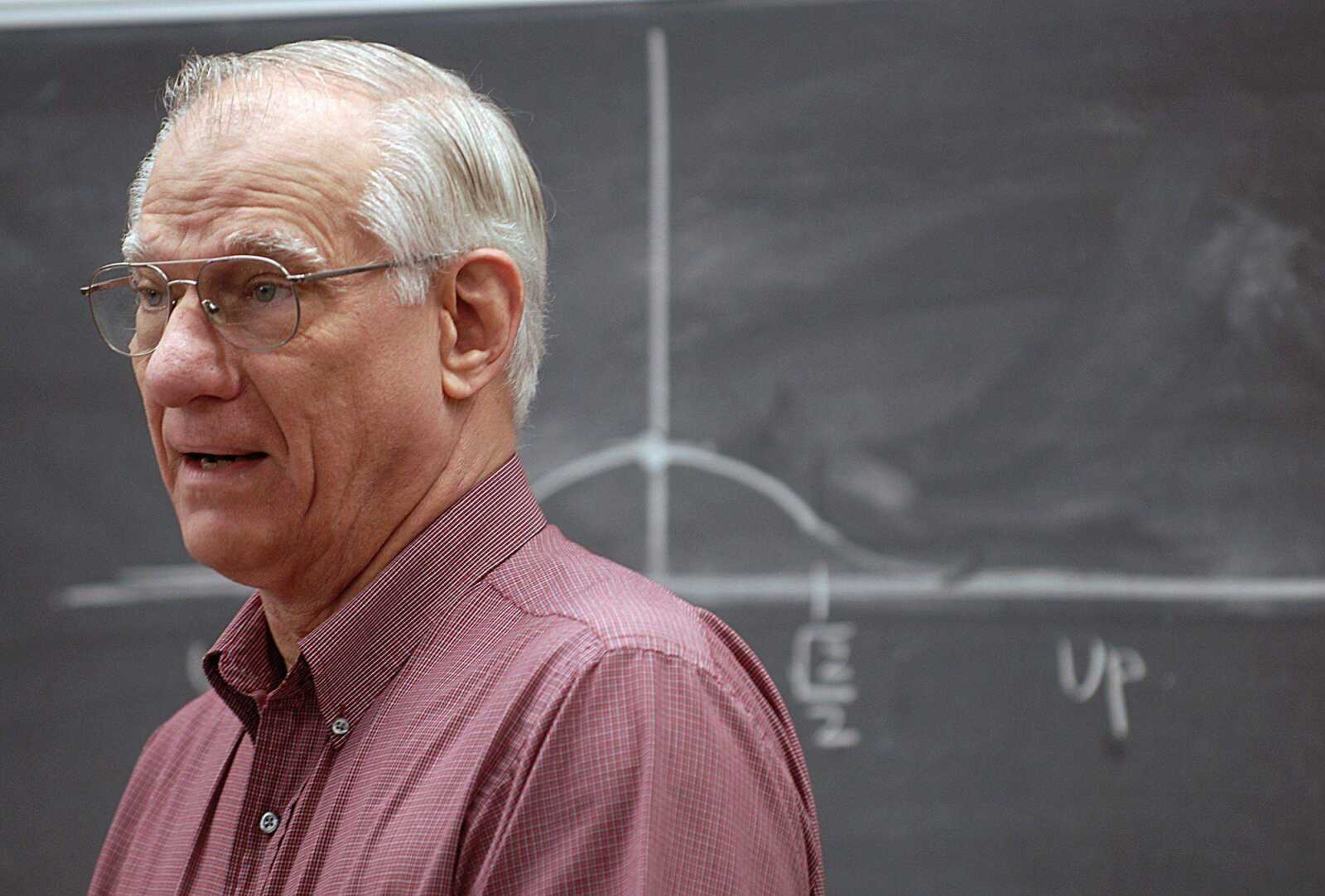About a third of Southeast Missouri State University faculty will be eligible to retire by 2011
An economic crisis may be keeping some aging professors from retiring, but a large-scale exodus is still imminent, a public policy expert says. At Southeast Missouri State University, 34 percent of faculty will be eligible to retire by 2011, a result of baby boomers hitting their 60s. The percentage largely mirrors a national trend...
An economic crisis may be keeping some aging professors from retiring, but a large-scale exodus is still imminent, a public policy expert says.
At Southeast Missouri State University, 34 percent of faculty will be eligible to retire by 2011, a result of baby boomers hitting their 60s. The percentage largely mirrors a national trend.
The loss of institutional knowledge and experience is expected to be significant, as experts worry new hires will not be tenured or tenure-track and school officials fear difficulties in attracting replacements in a competitive market.
"This is something that's been talked about for a number of years, but it seems for several years faculty members have been postponing retirement because of economic concerns. ... We've been waiting for a big bubble of faculty to retire. It hasn't quite happened as expected, but it still seems like it's looming," said John Curtis, director of research and public policy for the American Association of University Professors.
As Southeast officials complete a strategic plan, the need to specifically prepare for faculty retirements has continually been raised. The board of regents commissioned a study this summer to determine percentages of faculty eligible to retire. In May, the Southeast Missourian filed a Sunshine Law request for information about employee age demographics and the number of retirements and new hires for the past five years. Information was delivered at the end of September.
The figures show the business, liberal arts and university studies departments at risk for the highest turnover; nearly half of the business college faculty will be eligible to retire in the next three years. A smaller percentage will actually retire, officials say, because health benefits often keep professors in their positions much longer.
The transition has been a "long time coming," said Art Wallhausen, who retired this year as associate to the president. "The bubble goes back to the enormous growth we had in the '60s and '70s. Now 30 years later, [faculty] are all able to leave at about the same time," he said.

Southeast has already begun advertising for openings next fall. Positions are listed in national journals and on websites, and deans recruit throughout the year at conferences. Faculty members are asked to give a year's notice before retiring.
"We try to complete our selections after the first of the year and offer jobs early so they don't take a job somewhere else," said university president Dr. Ken Dobbins.
Competition, especially from better-paying private colleges, is a concern. As tuition caps are enacted and state budgets falter, private institutions are in a better position to offer higher salaries, Wallhausen said. He has anecdotally heard of private schools "poaching" good faculty.
The issue is compounded by the fact there are not as many candidates, said Abby Priedeman, operations manager for the American Association for Employment in Education, a group that helps universities find educators.
"Baby boomers were the big bump and since then births have decreased, so there naturally will be fewer people to replace them," she said.
Dobbins recalls a communication disorders vacancy that went unfilled for two years because supply was low. Nursing and computer science positions are also hard to fill. In extreme cases, deans at Southeast have hired additional faculty in anticipation of a possible retirement.
Replacing retiring faculty often only results in a "small budgetary savings" because starting salaries have become more competitive, Wallhausen said.
But while the university loses experience as tenured faculty leave, officials said it also presents an opportunity to hire a more diverse staff or redirect resources.
"In the 1970s, we might have had a great demand for some field that we may not have today," Wallhausen said. He said the university closely studies academic programs and anticipates future needs when determining new hires and their expertise.
A mechanical engineering option was added to the College of Science and Mathematics recently as a result of a newly hired faculty member, said Dr. Chris McGowan, dean of the college.
Causes for concern
On the national level, Curtis is concerned tenured faculty are being replaced by instructors or non-tenure-track employees. Tenure provides assurance and a means to protect academic freedom, he said. Without it, faculty may be afraid to expose students to a range of ideas or make classes overly challenging for fear of not being rehired, Curtis said.
Sophomore Blake Slattery said he can easily determine which faculty members are new instructors. Last year, he had a young teacher who spent each class flipping through slides.
"I think maybe the younger ones are trying to figure out how to go about a course," he said.
At Southeast, officials try to maintain a faculty where 85 percent are tenured, Dobbins said. But with enrollment increases, the university is relying more on nontenured instructors to teach beginning students.
Since 2003, 19 positions have been created to address additional students. An estimated 14 of those positions were nontenured, said Diane Sides, assistant to the president.
"Instructors are more than qualified to teach general education courses," McGowan said.
Junior Nick Burger prefers teachers with experience. "They tie more life experiences into their teaching. Older professors know how to relate to the students. They're more relaxed," he said.
Orienting new faculty
With the potential for widespread loss of institutional knowledge, leaders are stressing the importance of their Teaching Enhancement Workshop, a summer session required for all new faculty.
Members take a bus tour of Southeast Missouri to understand the environment students come from. They discuss assessment procedures, academic advising and how to use instructional technology. But most importantly, organizer Dr. David Starrett said, is a discussion about "Southeast's philosophy."
"We want them to realize we expect them to be engaging, interacting and getting to know students," said Starrett, who is also dean of the school of university studies and academic information services. "They need to be engaging in cooperative learning."
Occasionally a professor may retire in phases, teaching a reduced number of classes and allowing them to work side by side with a new faculty member.
Dr. Victor Gummersheimer, chairman of the Mathematics Department, said he would be open to potentially returning to the university after he retires at the end of the academic year.
Now 65, he was eligible to retire years ago. Under the current system, vested employees can retire under an "80 & Out" provision, when their age and years of service equal 80. To gain Medicare benefits, however, a person must be 65.
"I wanted to stay on. I like the work, and yes, the health benefits were another factor," he said.
Entering his 33rd year at the university, he said the most rewarding part of teaching is seeing students he taught 20 years ago becoming successful.
Dobbins said it will be difficult to replace a professor with so much experience.
"We are in nationwide pool for faculty. Many people don't realize that we're competing against every other university in the nation. All institutions are in a struggle to keep and recruit good people," he said.
lbavolek@semissourian.com
338-3627
Have a comment?
Log on to semissourian.com/today
Connect with the Southeast Missourian Newsroom:
For corrections to this story or other insights for the editor, click here. To submit a letter to the editor, click here. To learn about the Southeast Missourian’s AI Policy, click here.










